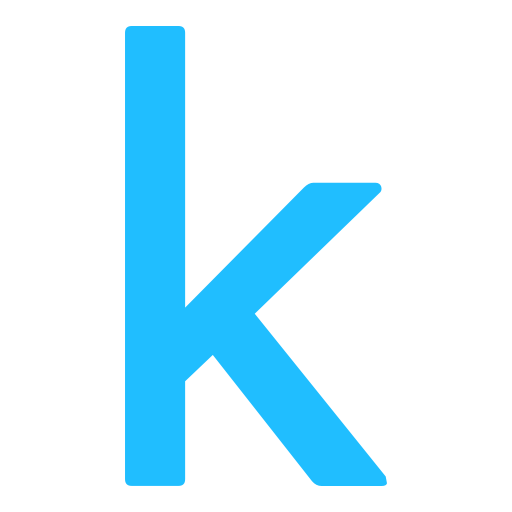Kaggle and Yodiz integration
Save yourself the work of writing custom integrations for Kaggle and Yodiz and use n8n instead. Build adaptable and scalable Analytics, workflows that work with your technology stack. All within a building experience you will love.


How to connect Kaggle and Yodiz
Create a new workflow and add the first step
In n8n, click the "Add workflow" button in the Workflows tab to create a new workflow. Add the starting point – a trigger on when your workflow should run: an app event, a schedule, a webhook call, another workflow, an AI chat, or a manual trigger. Sometimes, the HTTP Request node might already serve as your starting point.
Build your own Kaggle and Yodiz integration
Create custom Kaggle and Yodiz workflows by choosing triggers and actions. Nodes come with global operations and settings, as well as app-specific parameters that can be configured. You can also use the HTTP Request node to query data from any app or service with a REST API.
Supported API Endpoints for Kaggle
List competitions
List available competitions
List competition files
List competition files
Download competition files
Download competition files
Submit to a competition
Make a new competition submission
List competition submissions
Show your competition submissions
List datasets
List available datasets.
List files
List dataset files.
Download dataset files
Download dataset files.
Create dataset
Create a new dataset after initializing metadata.
Create dataset version
Create a new version of an existing dataset with version notes.
Download metadata
Download metadata for an existing dataset using its URL suffix.
Get dataset creation status
Get the status of the dataset creation process using its URL suffix.
List kernels
List available kernels based on specified filters.
Initialize kernel metadata
Initialize metadata for a new kernel setup.
Push code to kernel
Push new code to a kernel and execute it.
Pull code from kernel
Pull down the latest code from a kernel.
Get kernel output
Retrieve data output from the latest run of a kernel.
Get kernel run status
Display the status of the latest kernel run.
Get model
Retrieve a specific model using its URL suffix.
List models
Get a list of models with optional sorting and filtering.
Initialize model metadata
Create a metadata file for a new model.
Create model
Create a new model with specified metadata.
Delete model
Delete a model using its URL suffix.
Update model
Update a model by fetching its metadata file first.
Get model instance
Retrieve a model instance using its URL suffix.
Initialize model instance
Initialize a metadata file for creating a model instance.
Create model instance
Create a new model instance after initializing metadata file.
Delete model instance
Delete a model instance using its URL suffix.
Update model instance
Update a model instance after fetching its metadata file.
Create model version
Create a new version for a model instance.
Download model instance version
Download a model instance version using its specific URL suffix.
Delete model instance
Delete a model instance version using its specific URL suffix.
View current config values
View the current configuration values set in the system.
Set a configuration value
Set a new value for a specific configuration parameter.
Clear a configuration value
Clear an existing configuration value by name.
To set up Kaggle integration, add the HTTP Request node to your workflow canvas and authenticate it using a generic authentication method. The HTTP Request node makes custom API calls to Kaggle to query the data you need using the API endpoint URLs you provide.
See the example hereThese API endpoints were generated using n8n
n8n AI workflow transforms web scraping into an intelligent, AI-powered knowledge extraction system that uses vector embeddings to semantically analyze, chunk, store, and retrieve the most relevant API documentation from web pages. Remember to check the Kaggle official documentation to get a full list of all API endpoints and verify the scraped ones!
Supported API Endpoints for Yodiz
Get Issue Meta
Retrieve metadata for issues in a specific project.
Get userstory meta
This endpoint returns userstory meta of given project.
Get task meta
This endpoint returns task meta of given project.
Get epic meta
This endpoint returns epic meta of given project.
Get projects
Retrieve a list of all projects.
Get projects
This endpoint retrieves all projects.
Create attachment
This endpoint associates the attachments with provided item of given project.
Get attachments
This endpoint retrieves all attachments of given item type.
Get Backlog
Retrieve the backlog items for a project.
Get backlog
This endpoint retrieves the backlog userstories of given project.
Get Users
Retrieve a list of users associated with a project.
Get users
This end point retrieves the backlog userstories of given project.
Get Comments
Retrieve comments associated with a project or issue.
Get comments
This end point retrieves all comments of given item type.
Get Attachments
Retrieve attachments related to an issue or project.
Add attachment
This end point allows adding an attachment to a resource.
Get Bulk Items
Retrieve bulk items across projects.
Create Userstory
Create a new userstory in the system.
Create Issue
Create a new issue associated with a project.
Create issue
This end point creates a new issue.
Get issue
This end point retrieves the specified issue.
Create Userstory Task
Create a new task under a userstory.
Get Sprint Issues
Retrieve issues associated with a specific sprint.
Get Releases
Retrieve a list of all releases in the system.
Create Epic
Create a new epic for managing larger bodies of work.
Get components
This end point retrieves all components of given project.
Get custom fields
This end point retrieves all custom fields for specified item type of given project.
Get bulk items
This endpoint retrieves bulk items based on item type and project IDs.
Get items
This endpoint retrieves bulk items along with their sub items.
Create userstory
This endpoint creates a new userstory of given project.
Get userstory
This endpoint retrieves a specific userstory based on the provided ID.
Get userstories
This endpoint retrieves all userstories of a given project.
Get userstory issues
This endpoint retrieves all issues of given userstory.
Get userstory sub items
This endpoint retrieves sub items for given userstory.
Update userstory
This endpoint updates an existing userstory.
Update userstory
This end point updates specified userstory.
To set up Yodiz integration, add the HTTP Request node to your workflow canvas and authenticate it using a generic authentication method. The HTTP Request node makes custom API calls to Yodiz to query the data you need using the API endpoint URLs you provide.
See the example hereThese API endpoints were generated using n8n
n8n AI workflow transforms web scraping into an intelligent, AI-powered knowledge extraction system that uses vector embeddings to semantically analyze, chunk, store, and retrieve the most relevant API documentation from web pages. Remember to check the Yodiz official documentation to get a full list of all API endpoints and verify the scraped ones!
Kaggle and Yodiz integration details
FAQ
Can Kaggle connect with Yodiz?
Can I use Kaggle’s API with n8n?
Can I use Yodiz’s API with n8n?
Is n8n secure for integrating Kaggle and Yodiz?
How to get started with Kaggle and Yodiz integration in n8n.io?
Looking to integrate Kaggle and Yodiz in your company?
The world's most popular workflow automation platform for technical teams including
Why use n8n to integrate Kaggle with Yodiz
Build complex workflows, really fast


